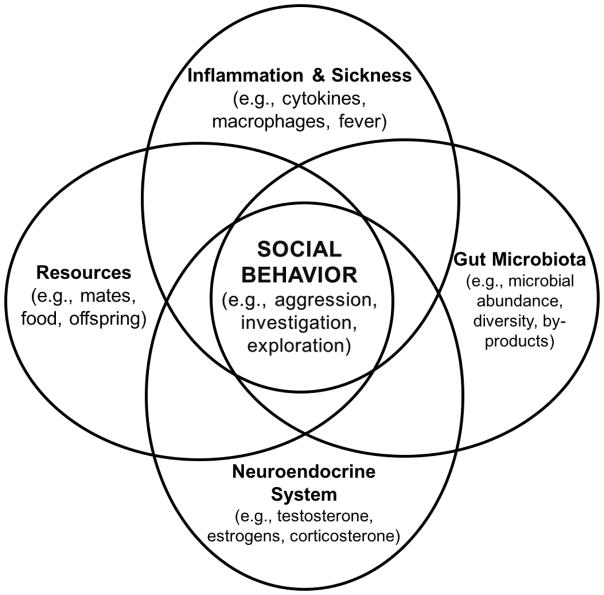Figure 1.
Previous work has been aimed at determining the role that the central nervous system, the gut microbiome and the immune systems play in social behavior and adult sensitivity to subsequent stressors, yet some previous studies have overlooked the interactions between these systems and the communication among the systems used to regulate (or deregulate) social behavior. This theoretical model illustrates some of the brain-gut-immune interactions that play a role in behavioral outcomes, including social and affective behaviors (e.g., investigation, aggression, and anxiety- and depression-like behavior). The interactions among these systems are key to understanding how social behavioral changes occur and the potential mechanisms mediating psychopathologies.

